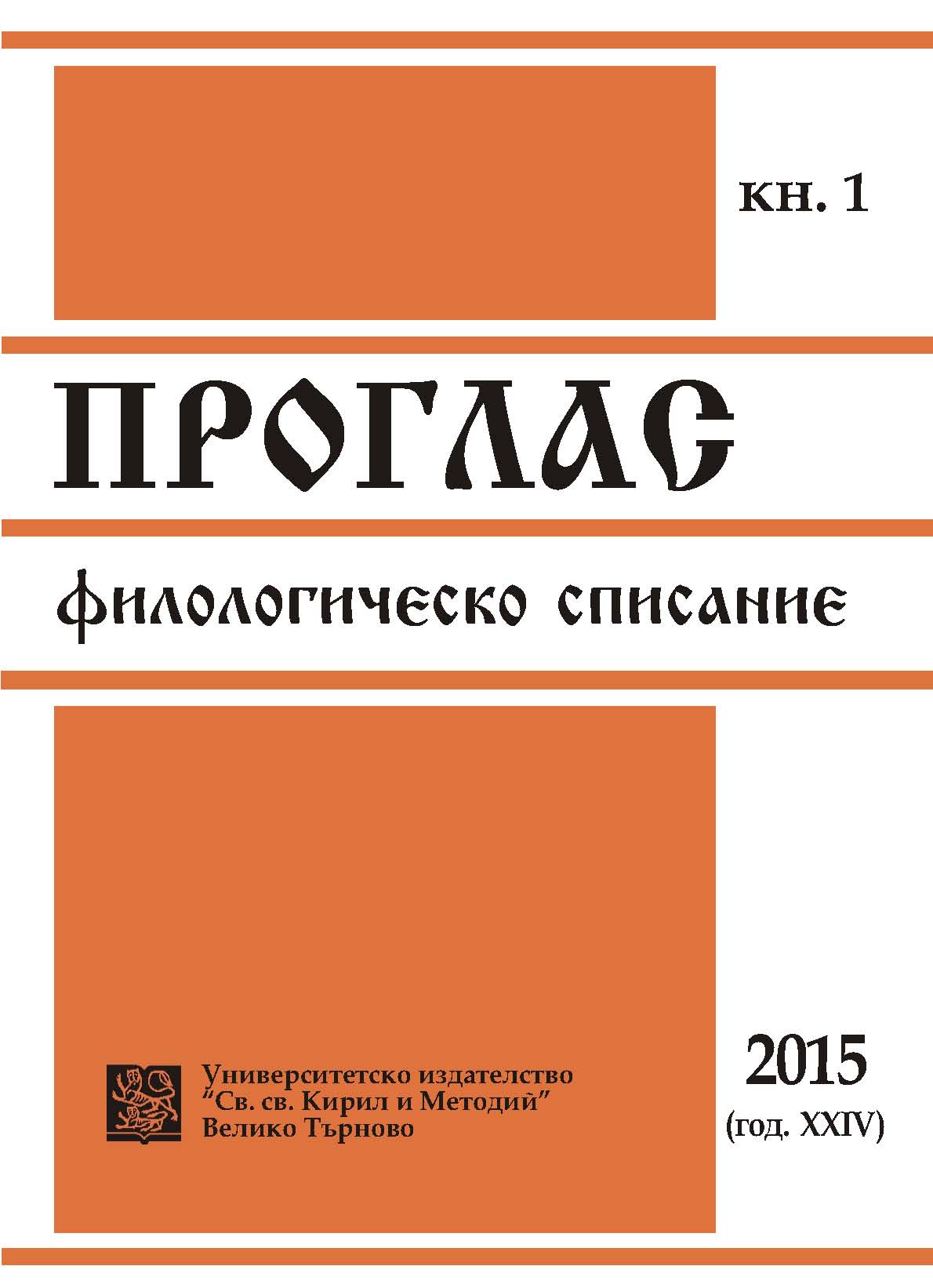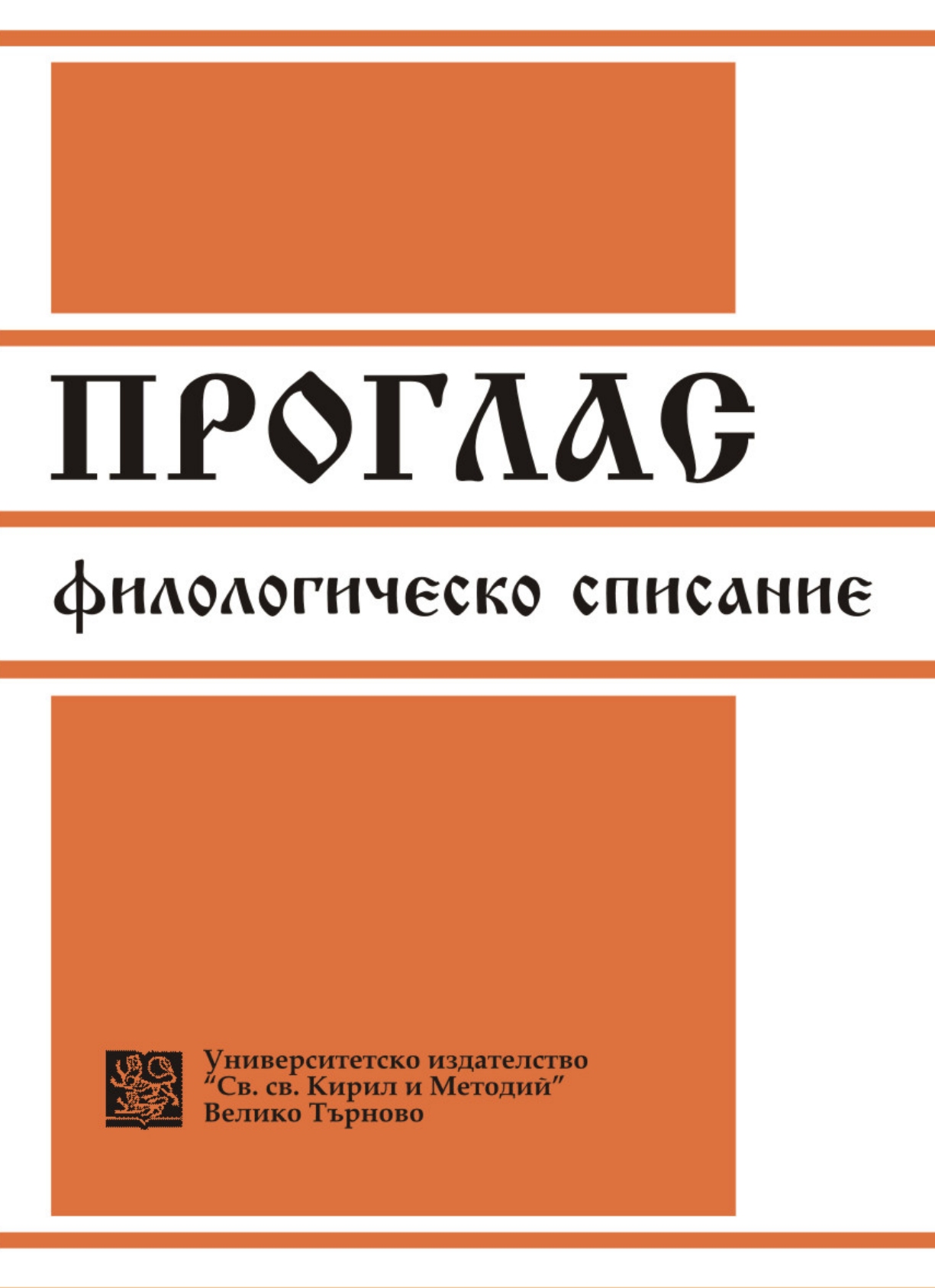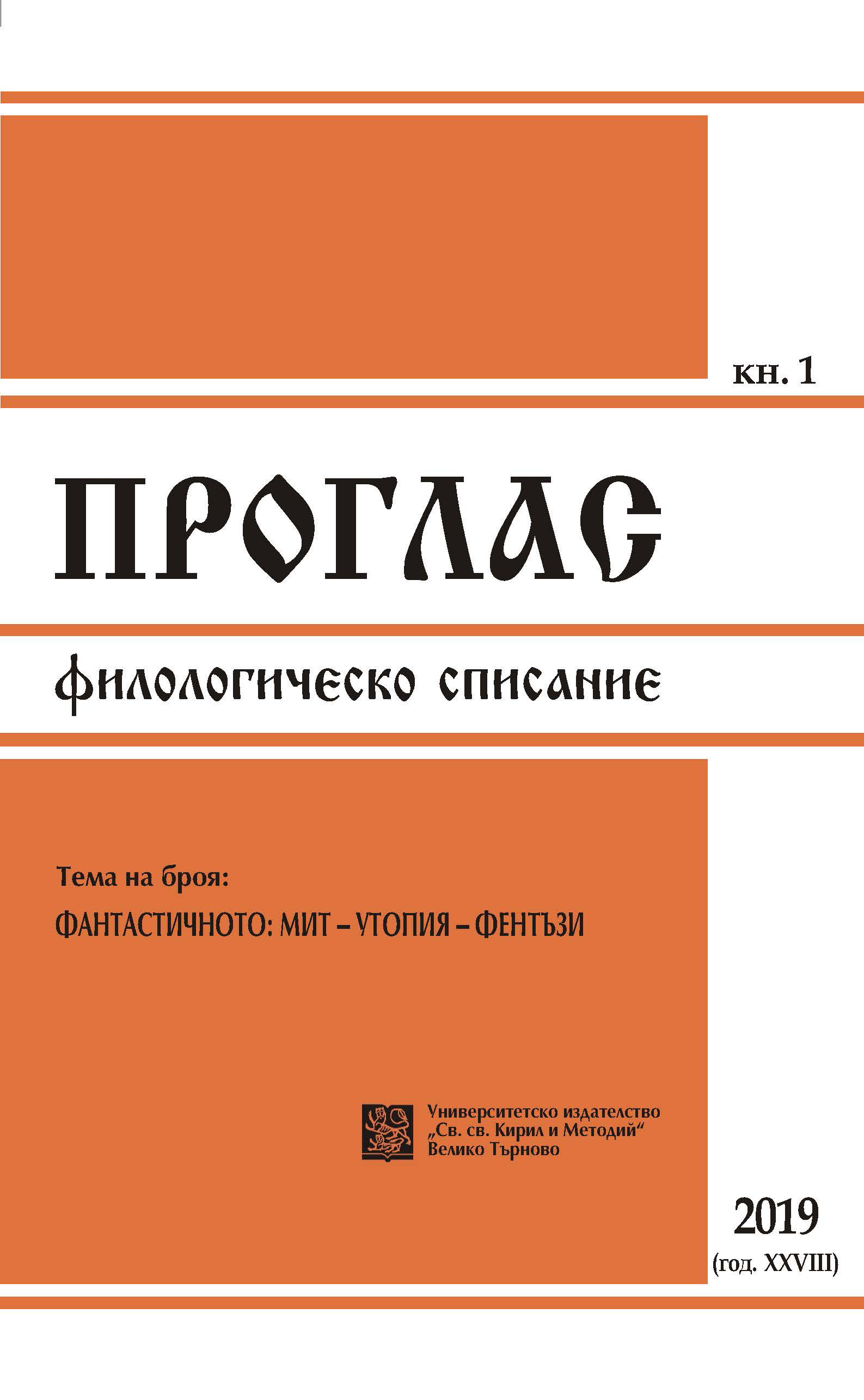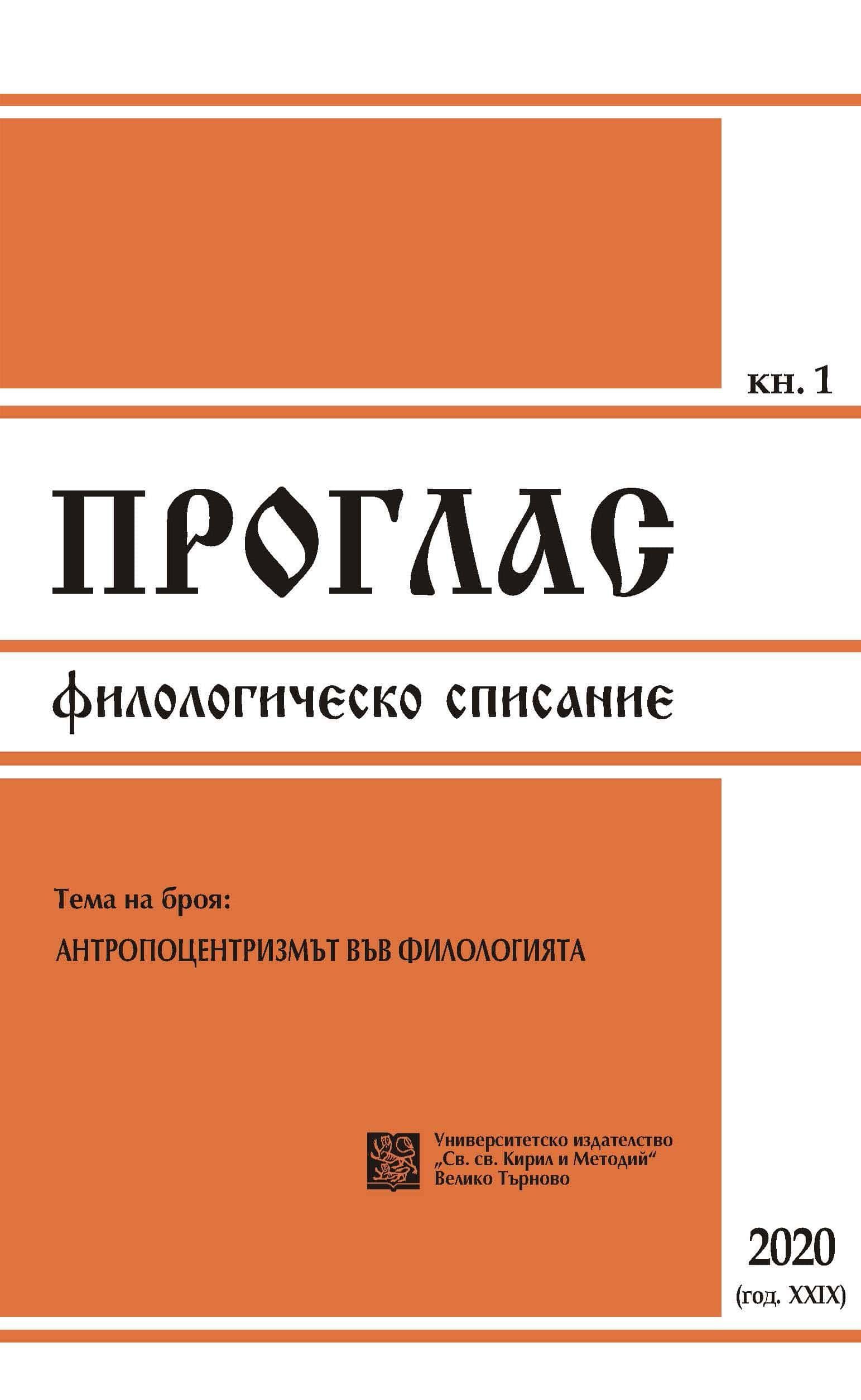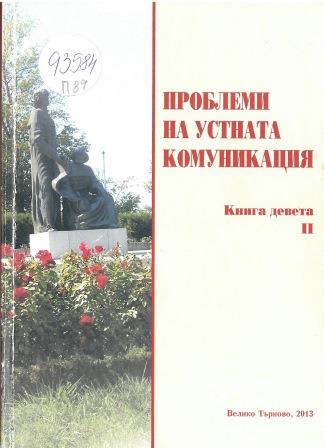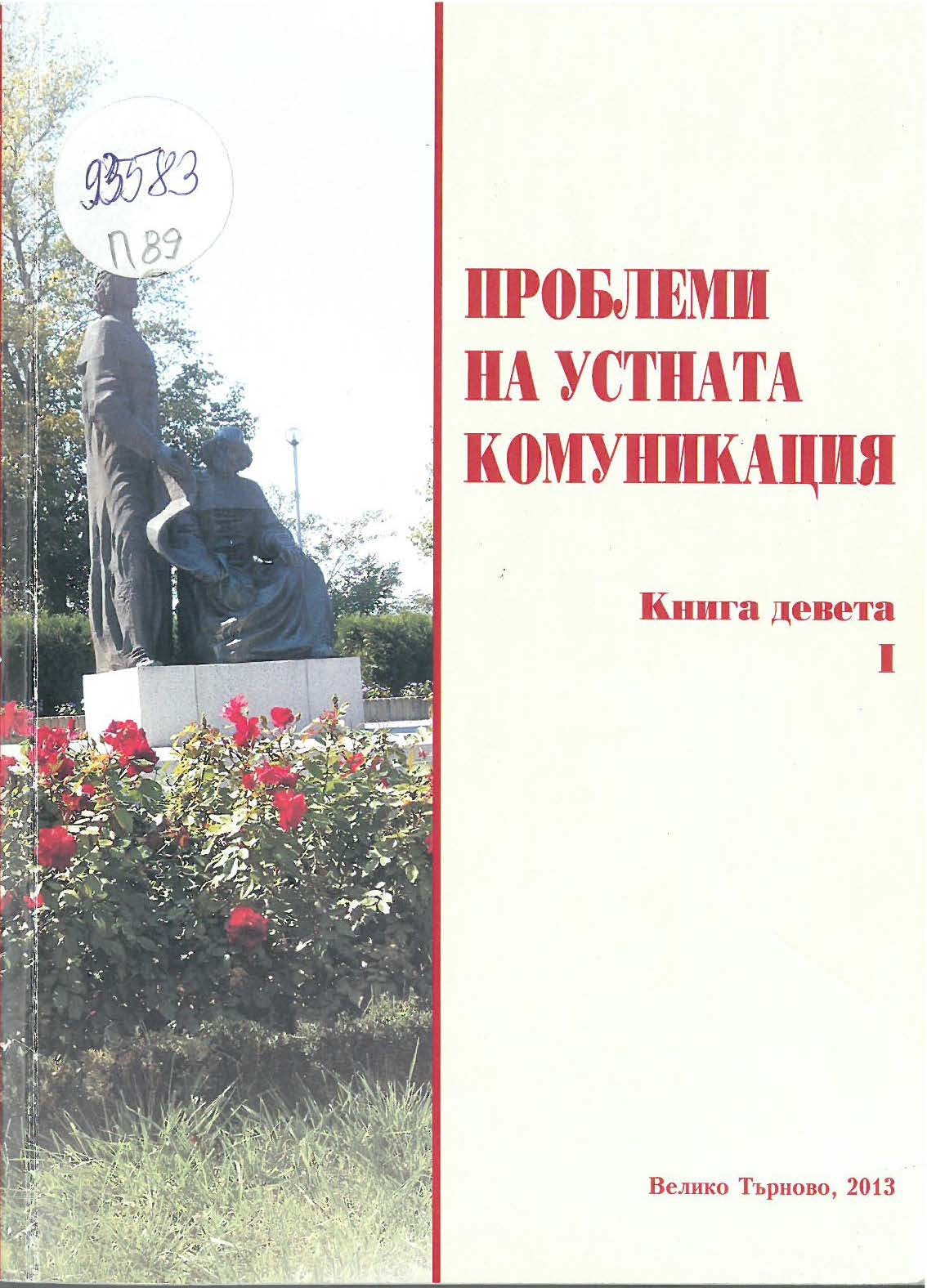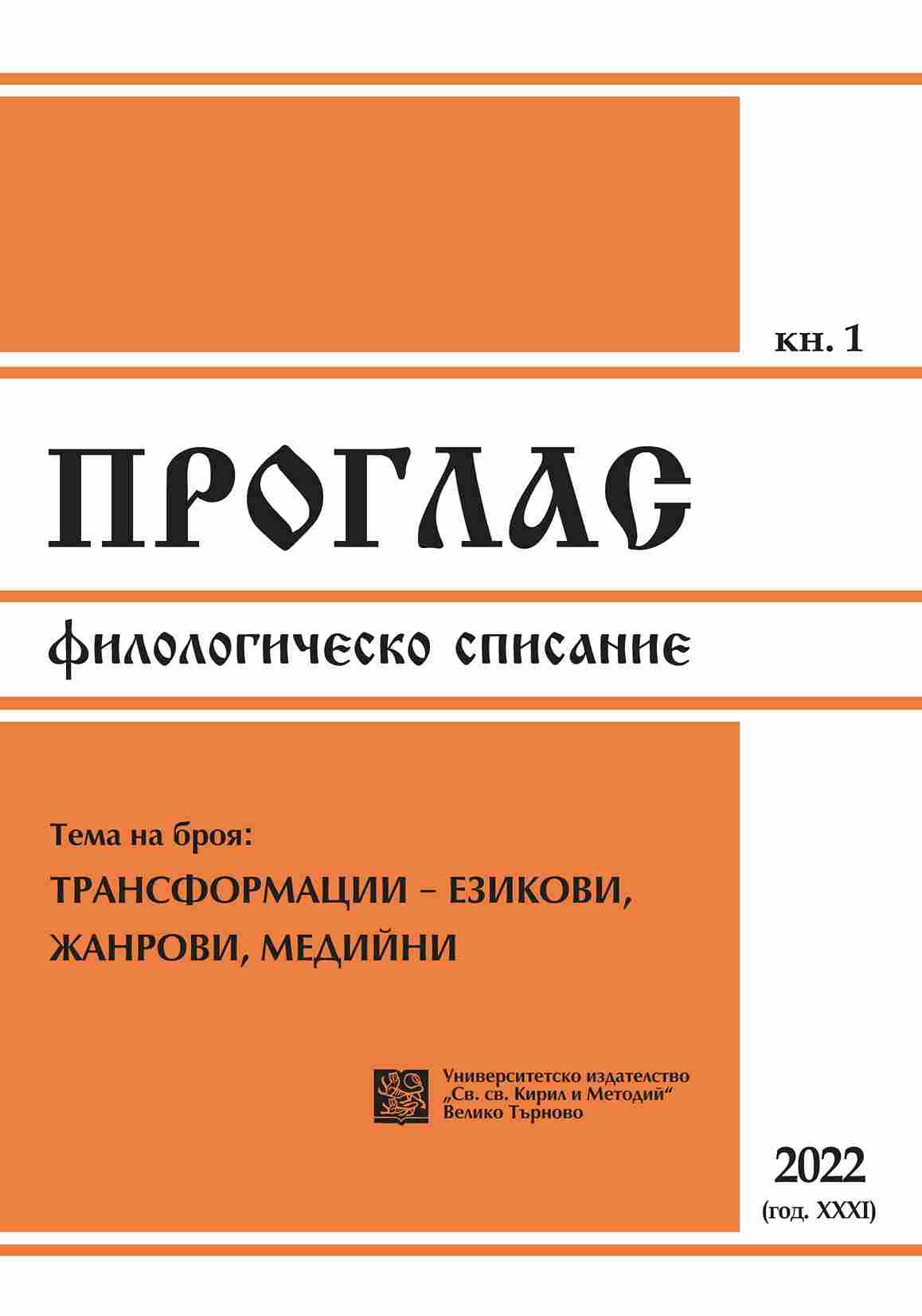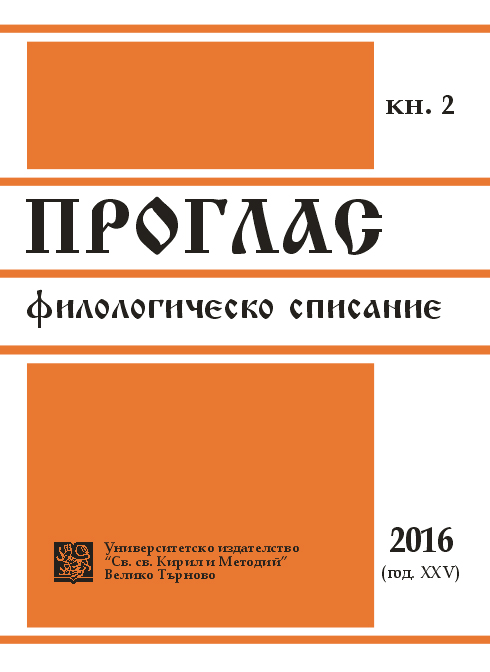
Имена за вършители на действие (Nomina actoris) във Врачанското евангелие от XIII или ХIV век
The paper focuses on agent nouns (nomina actoris) in the Vratsa Gospel, a medieval manuscript which dates back to the 13th or 14th century. The formations are classified by suffixes and presented in word-formation types. Formants, which form word-formation types, are varied, making nomina actoris one of the best performing categories with desubstantive motivation in the Vratsa Gospel.
More...
